From July 8 to 15, 2025, the Peking University “Silk Road: Past and Present” delegation carried out academic field research in Serbia and Turkey. The delegation was organized by faculty and students from the International and Regional Studies Program at the Peking University School of Foreign Languages, the National Social Science Fund Major Project “Theoretical and Practical Research on Cultivating Integrated, Internationalized High-End Foreign Language Talents”, and the major project “Collation and Research of Archival Documents on the Pacific Silk Road”. The delegation was led by Ning Qi, Vice President and Deputy Secretary of the CPC Peking University Committee, and included Li Shujing, Secretary of the CPC Committee of the School of Foreign Languages, along with ten other faculty and students from relevant disciplines of Peking University.
The delegation focuses on three main themes, “Strategic Exchanges and Cooperation between China, Serbia, and Turkey”, “Chinese Enterprises along the Belt and Road: Opportunities and Challenges”, and “People-to-People Exchanges between China, Serbia, and Turkey.” The delegation visited government agencies, universities, think tanks, enterprises, and factories. Delegates gained a deep understanding of the local socio-political, economic, and cultural landscapes, explored industrial development opportunities and challenges, and identified potential areas for mutual learning among civilizations. Through various methods such as field observation, in-depth interviews, discussion sessions, and seminars, the team enhanced their understanding of the two countries and worked to deepen ongoing cooperation between Peking University and relevant institutions in Serbia and Turkey across various fields including academia, culture and economy.
On the morning of July 8, the delegation visited the Chinese Chamber of Commerce in the Republic of Serbia. Representatives from China Road and Bridge Corporation, Huawei, Bank of China, and Linglong Tire Europe attended the meeting. Both sides discussed the practical experiences and challenges faced by Chinese enterprises operating in Serbia, focusing on infrastructure connectivity, financial support, industrial chain localization, digitalization and talent cultivation, and corporate social responsibility. They explored how Chinese enterprises can achieve high-quality and sustainable development in Central and Eastern Europe, thereby better serving the national Belt and Road Initiative and their own global layouts.
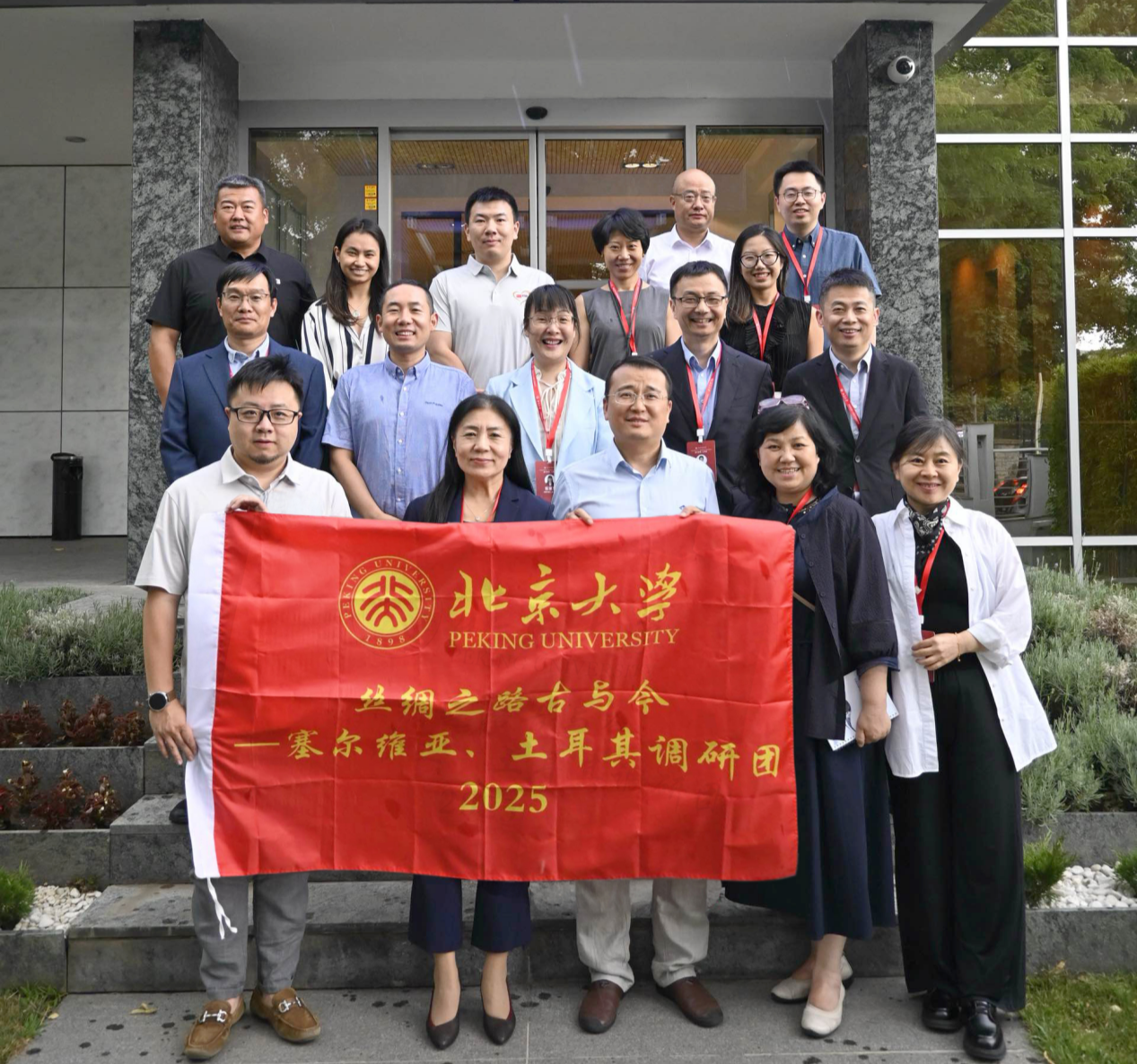
That afternoon, the delegation took the Budapest–Belgrade railway to Novi Sad, Serbia’s second-largest city, for an on-site visit of the project department jointly constructed by China Railway International and China Communications Construction Company. The project leadership introduced the construction progress, technical standards, and operational plans for the Serbian section of the Hungary-Serbia Railway, sharing experiences and challenges encountered in localization cooperation, environmental management, regulatory compliance, and technology transfer. Delegation members engaged in discussions with the project team on the role of Chinese enterprises in infrastructure construction along the Belt and Road, corporate social responsibility, and local talent cultivation.
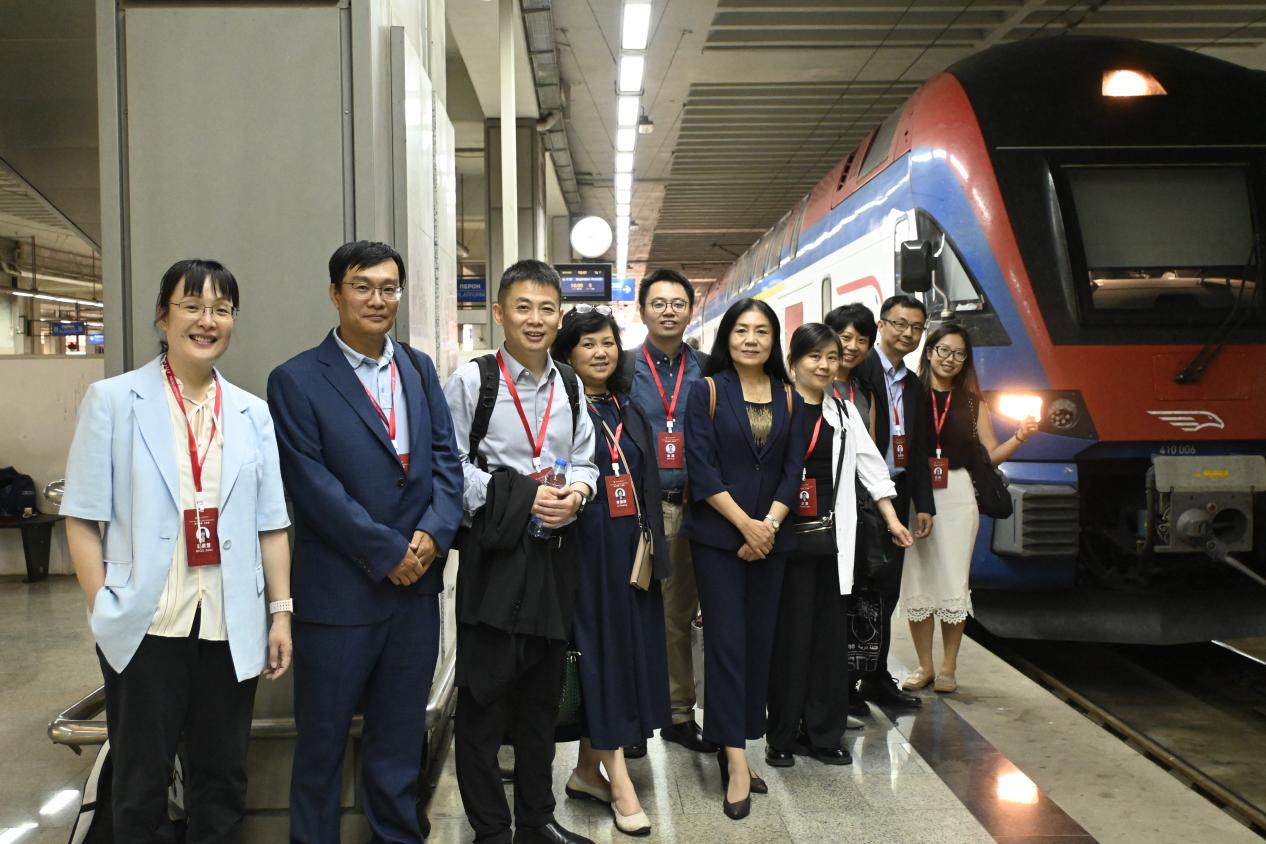
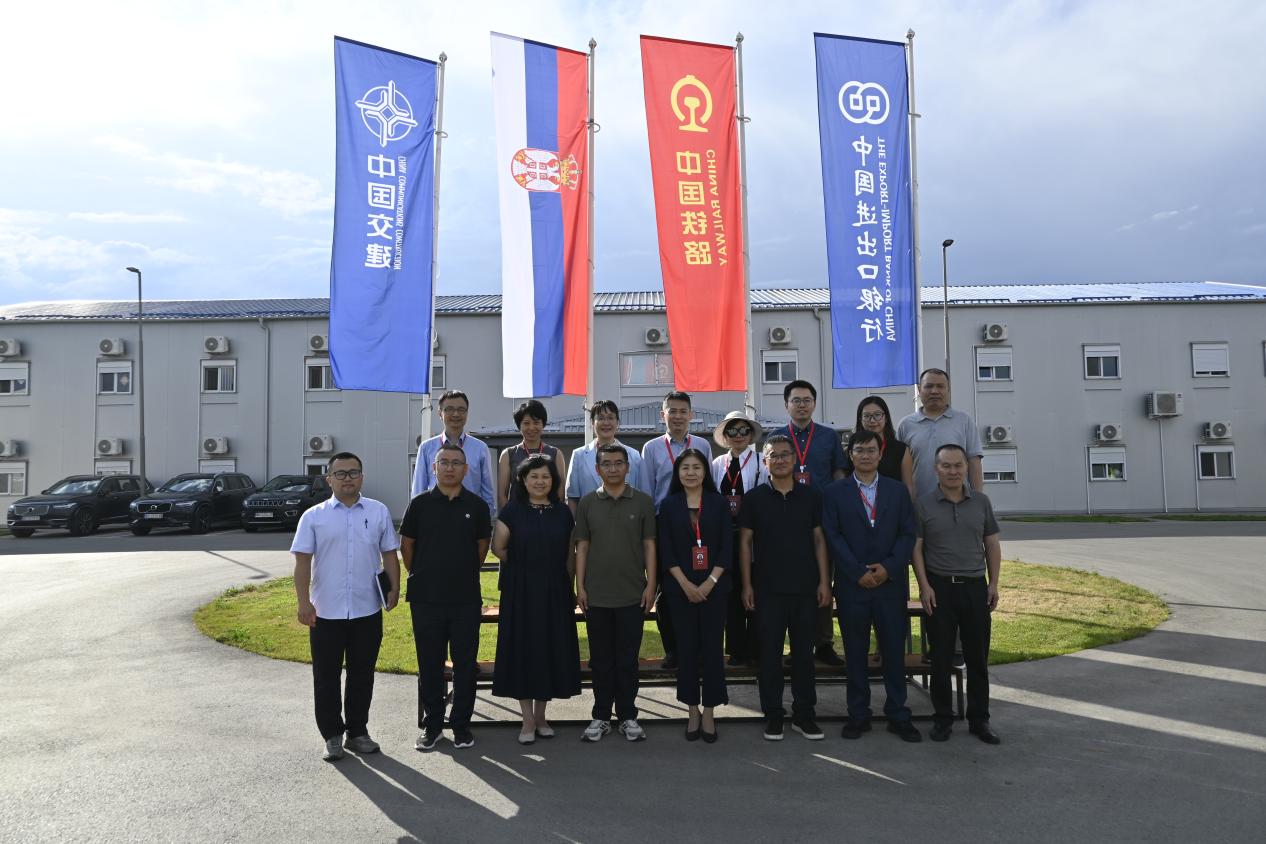
On July 9, the delegation visited the Institute of International Politics and Economics in Belgrade. Dr. Katarina Zakić, Director of the Belt and Road Regional Research Center, provided a briefing on Serbia’s recent political and economic situation and the current state of China-Serbia cooperation under the Belt and Road Initiative, with a focus on regional economic development, emerging industry layouts, and the opportunities and challenges for cooperation between Serbian and Chinese enterprises, further deepening the team’s understanding of Serbia’s national conditions and policy environment.
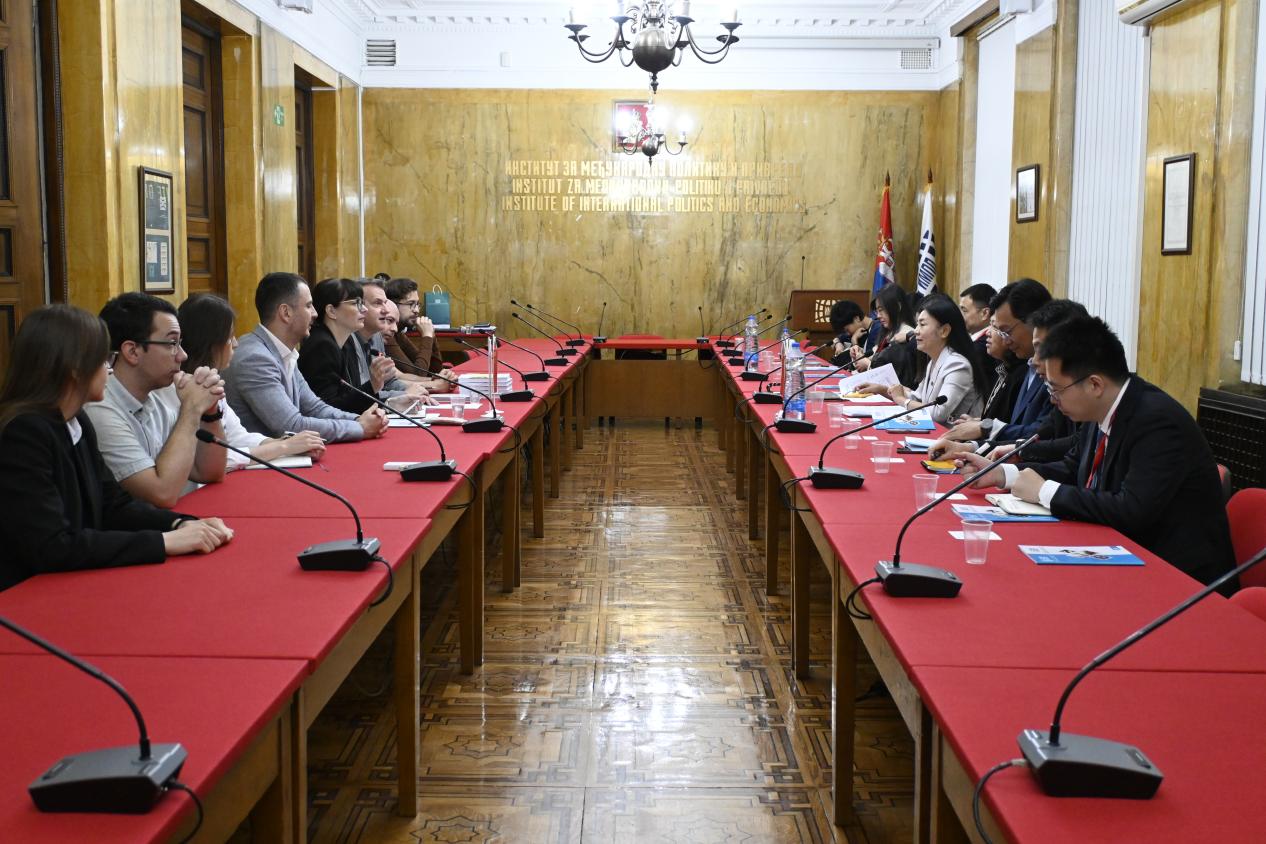
On the afternoon of July 9, the delegation traveled to Smederevo for an on-site visit to HBIS Group Serbia Iron & Steel. Executive Director Song Sihai and Deputy General Manager Wang Lianxi comprehensively introduced the company’s operations since HBIS Group acquired it in 2016. Intensive exchanges were held on technology upgrades, green transformation, and the integration of Chinese and Serbian corporate cultures. The delegation also discussed topics such as Serbia’s investment environment, sustainable development paths for Chinese enterprises, and cross-cultural management experiences with company representatives, gaining a deep understanding of this representative case and practical outcomes of China-Serbia industrial capacity cooperation.
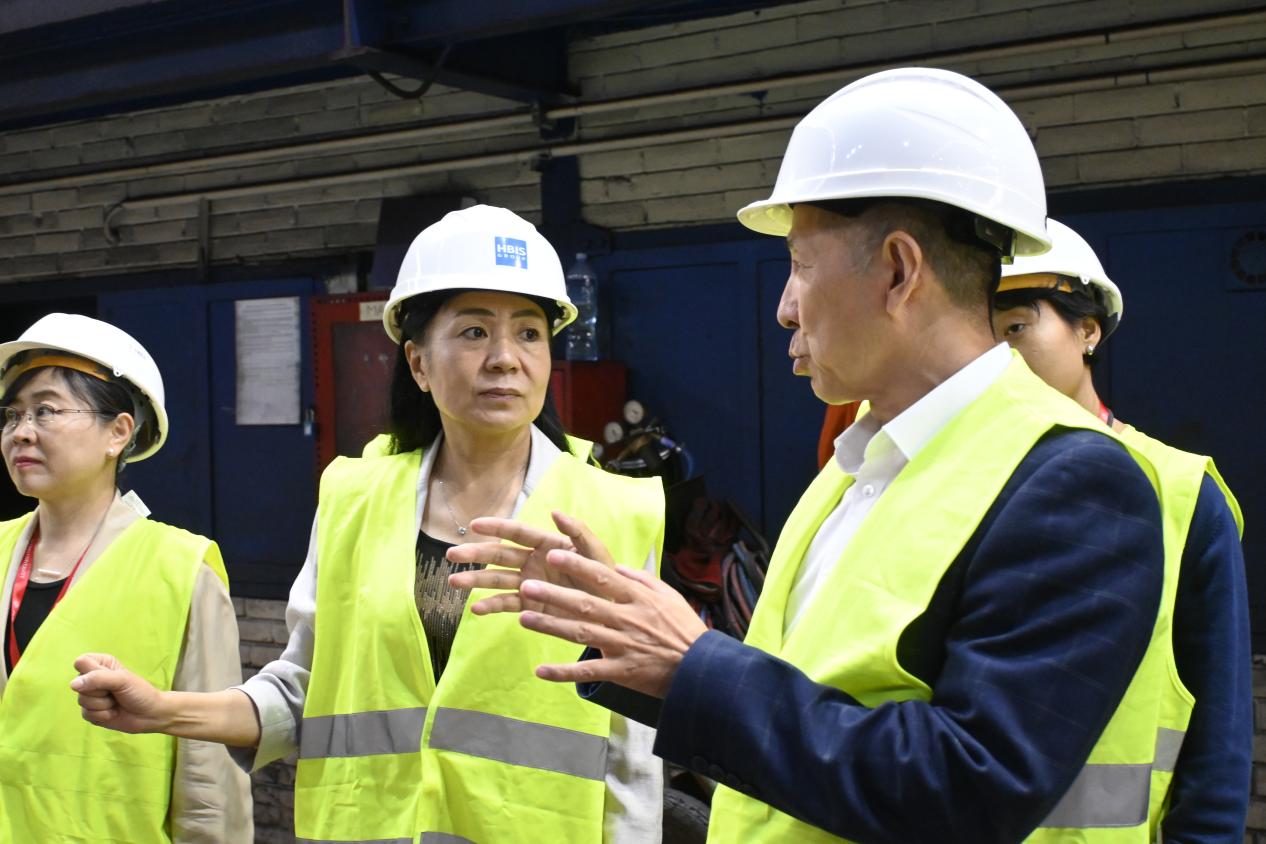
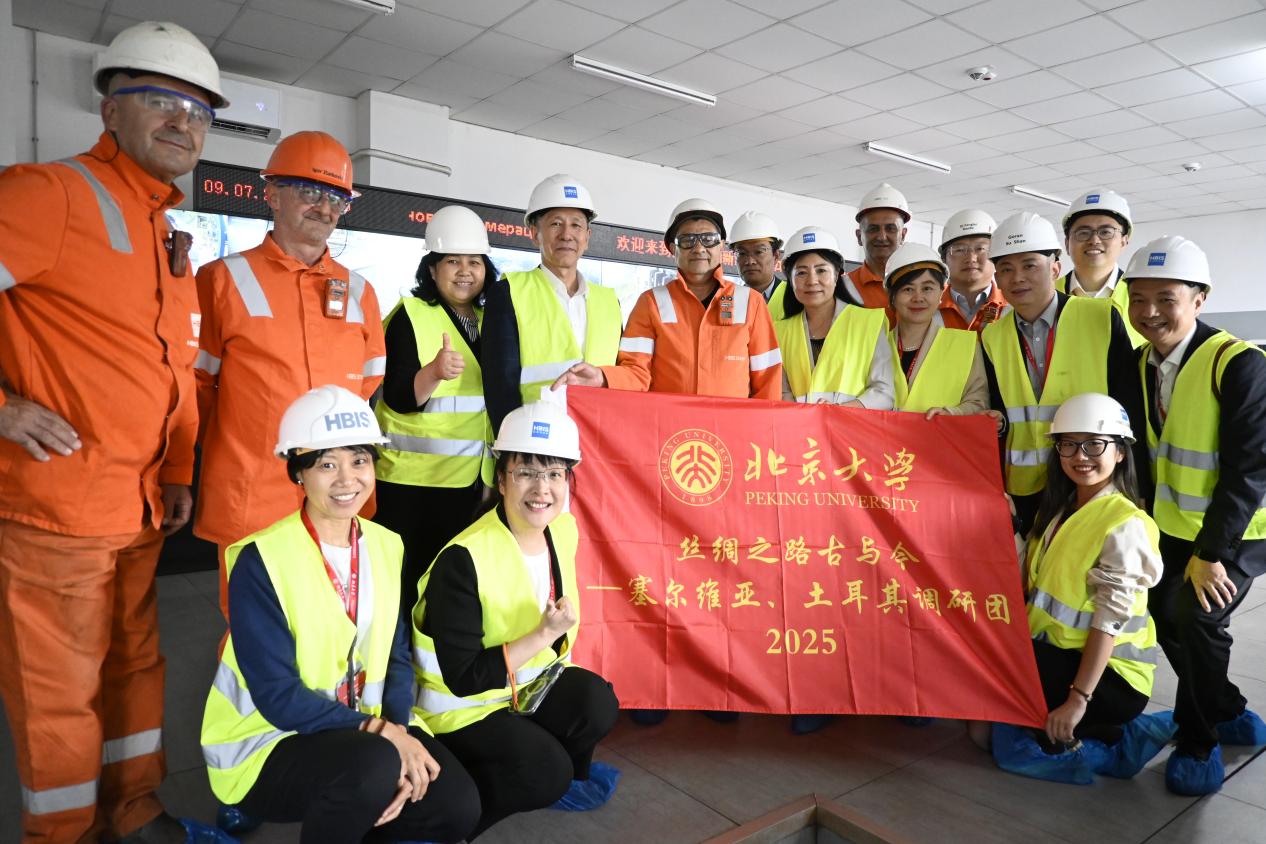
On the evening of July 9, the delegation visited the site of the former Chinese Embassy in the Federal Republic of Yugoslavia to pay respects to the three martyrs, Xu Xinghu, Shao Yunhuan, and Zhu Ying, who were tragically killed in the NATO bombing in 1999. All members stood in solemn silence before the memorial stele, offered flowers, and deeply commemorated the heroes.
On the same day, the delegation was received by the Chinese Embassy in Serbia and held discussions with Counselor for Cultural Affairs Tang Dasheng. Delegation members engaged in in-depth discussions with Counselor Tang on topics including China-Serbia people-to-people exchanges, youth exchanges, and academic cooperation, further enhancing their understanding of Serbia’s cultural and educational policies and the prospects for China-Serbia cooperation.
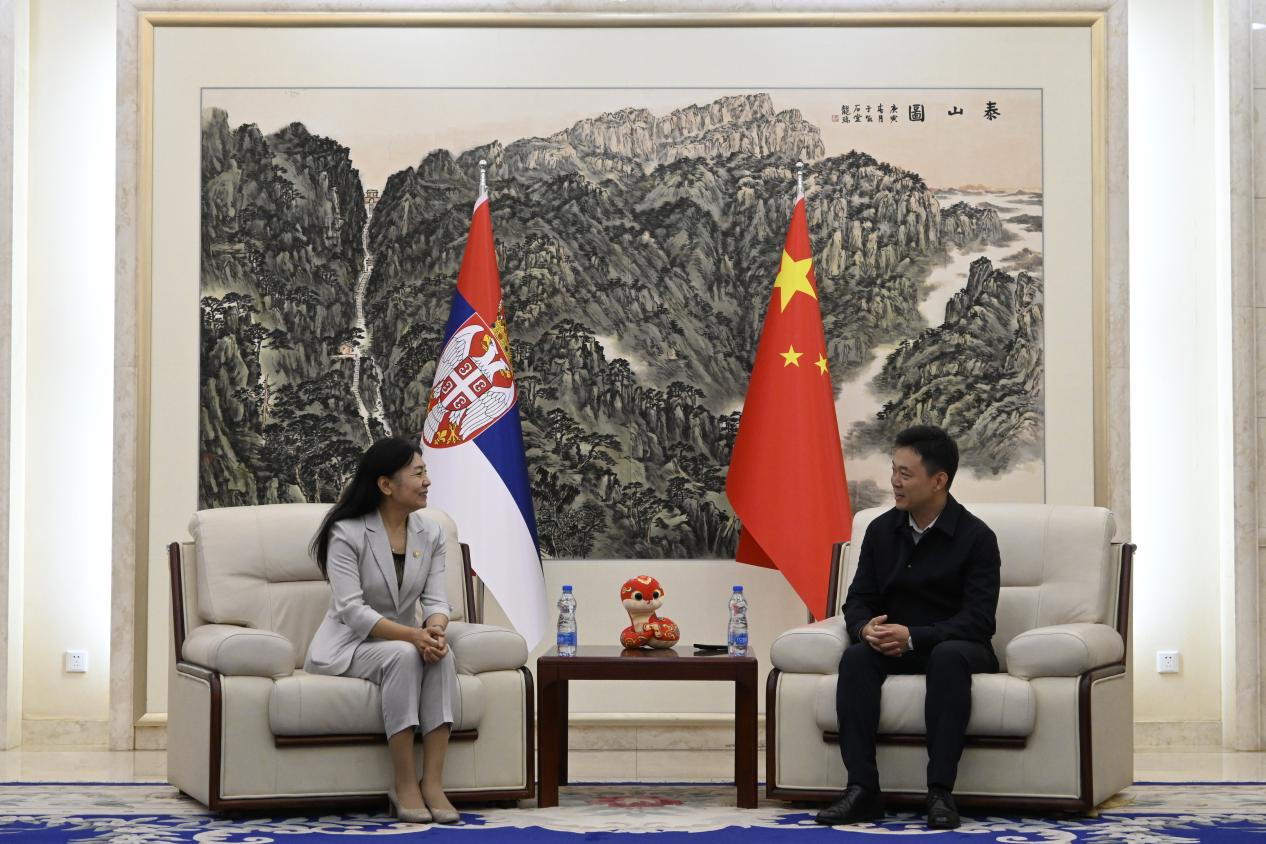
On July 10, the delegation visited Zijin Mining Overseas Headquarters and PowerChina Euroasia Headquarters. Representatives from Zijin Mining detailed the company’s global investment portfolio and operational management, focusing on its practices in resource development, environmental protection, and community responsibility. Representatives from PowerChina presented technological innovations and risk management approaches for infrastructure and energy projects in complex geographical environments within the region, emphasizing green development concepts and localized cooperation models. Delegation members held thorough exchanges with the management teams of both companies on topics such as mining industry chain expansion under the Belt and Road framework, transnational engineering cooperation, project financing, local talent cultivation, and green transformation, gaining further insight into the opportunities and challenges faced by Chinese enterprises’ going global.
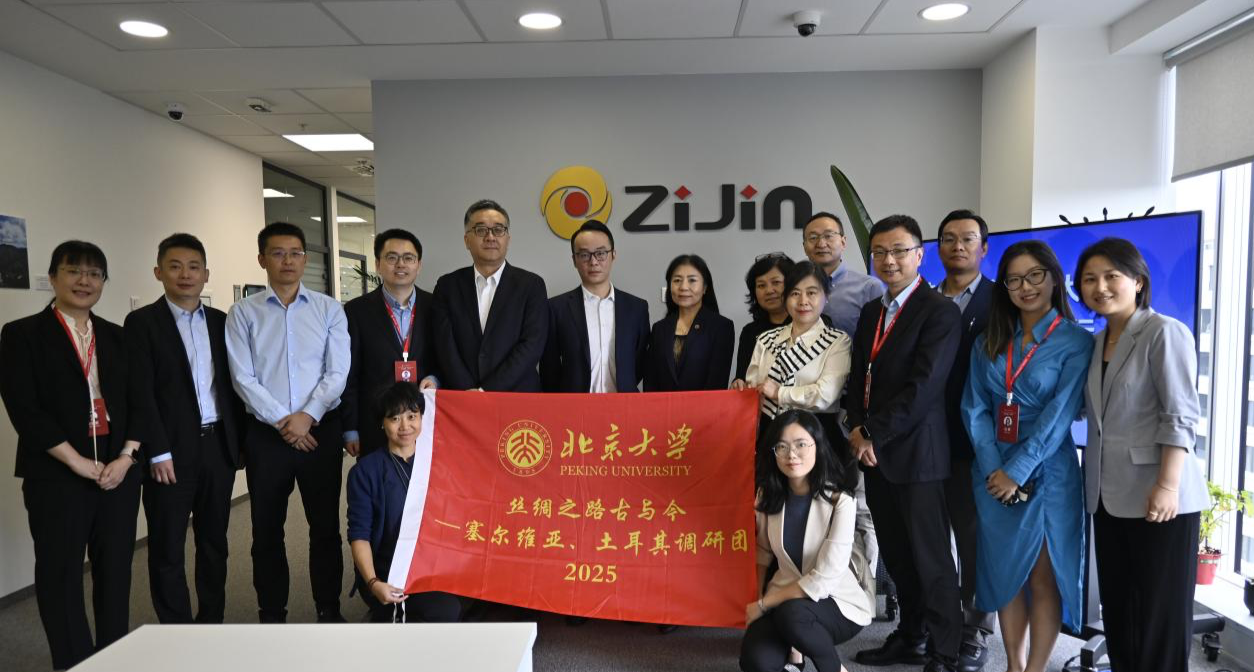
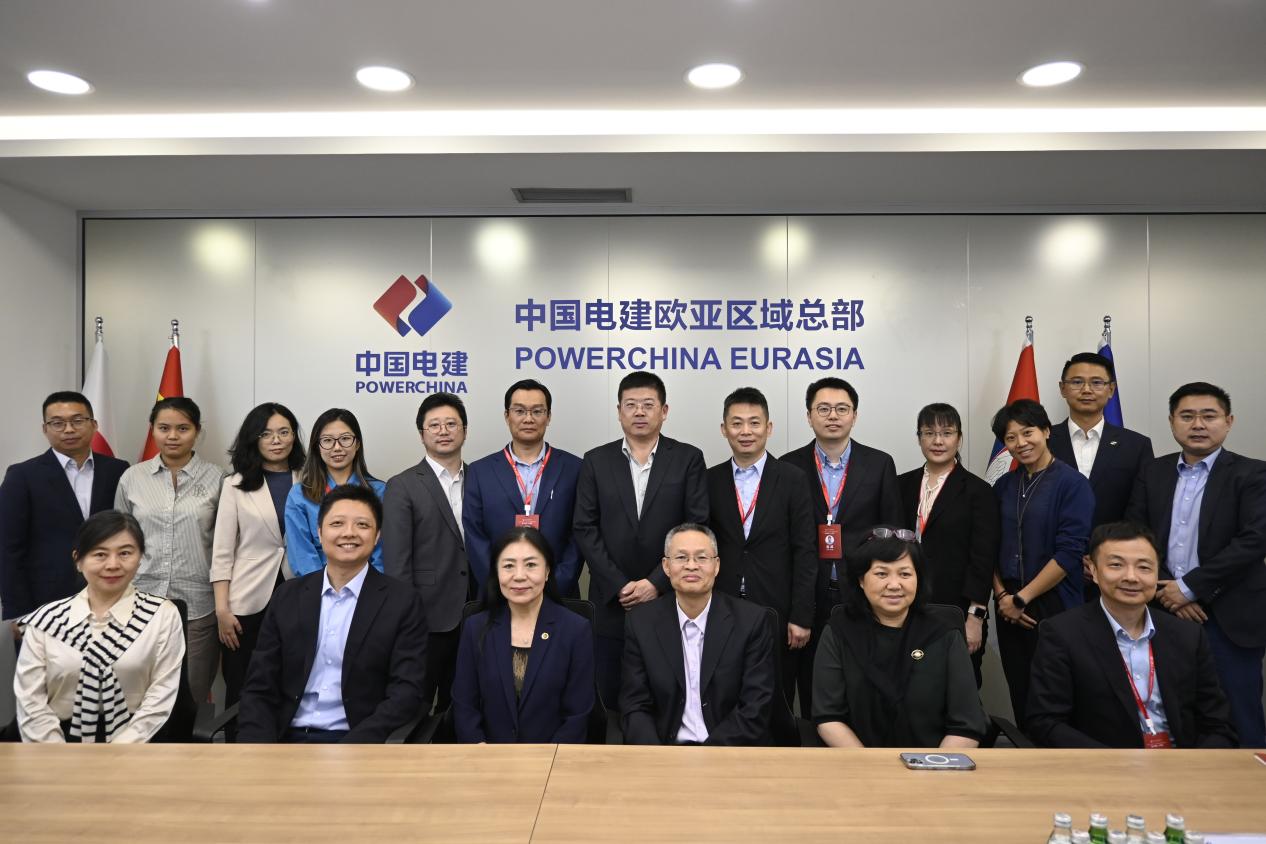
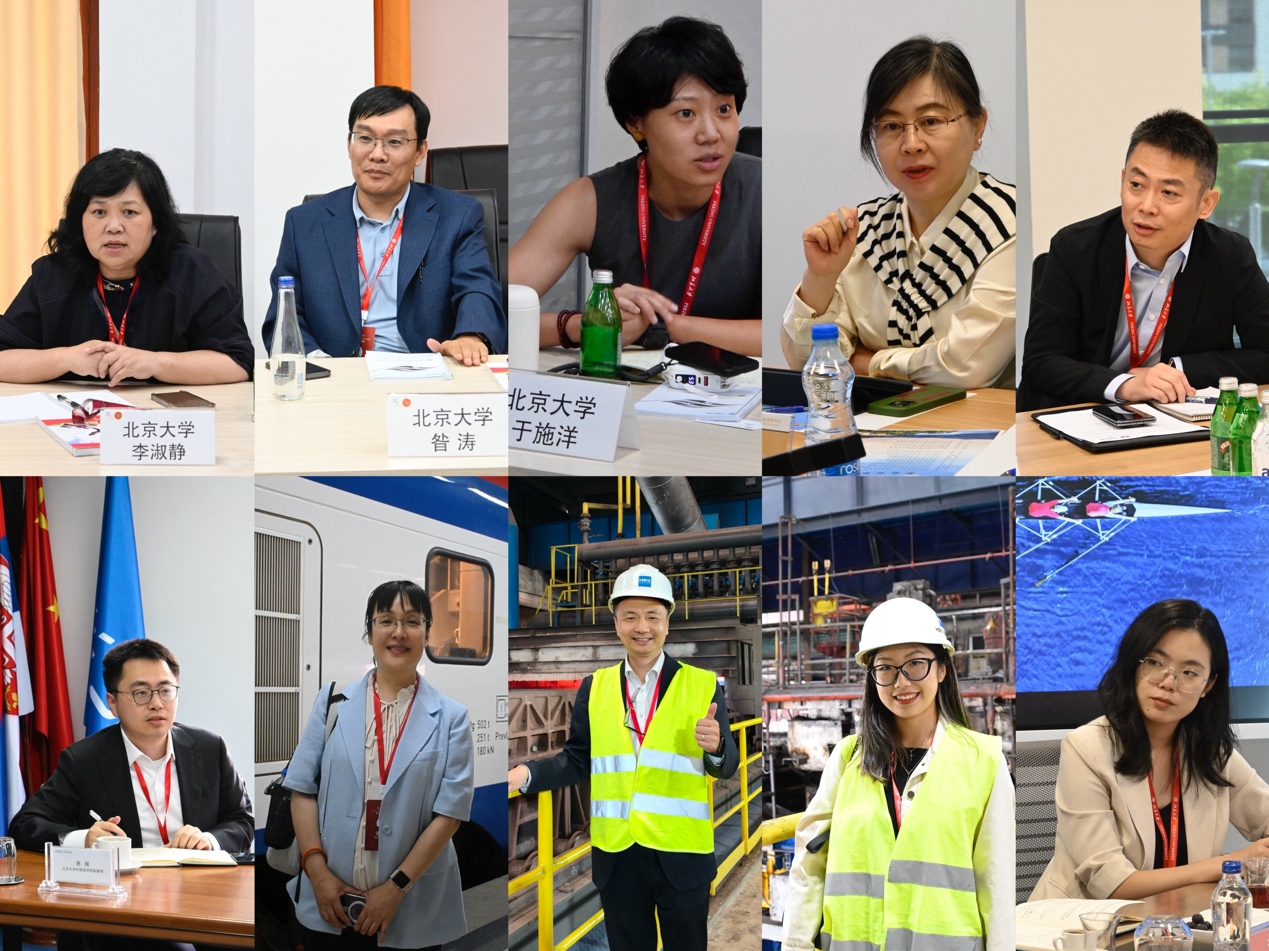
On the morning of July 11, the delegation visited the Center for Strategic Research, a think tank under the Center for Strategic Studies at the Ministry of Foreign Affairs of Turkey, met with its Director, Dr. Polat Safi, and co-hosted an academic workshop on “Geopolitics and China-Turkey Cooperation” with Turkish experts. The two sides held in-depth discussions on China-Turkey relations, geostrategic dynamics in Southeast Asia, connectivity in Central Asia, and energy security, achieving constructive outcomes.
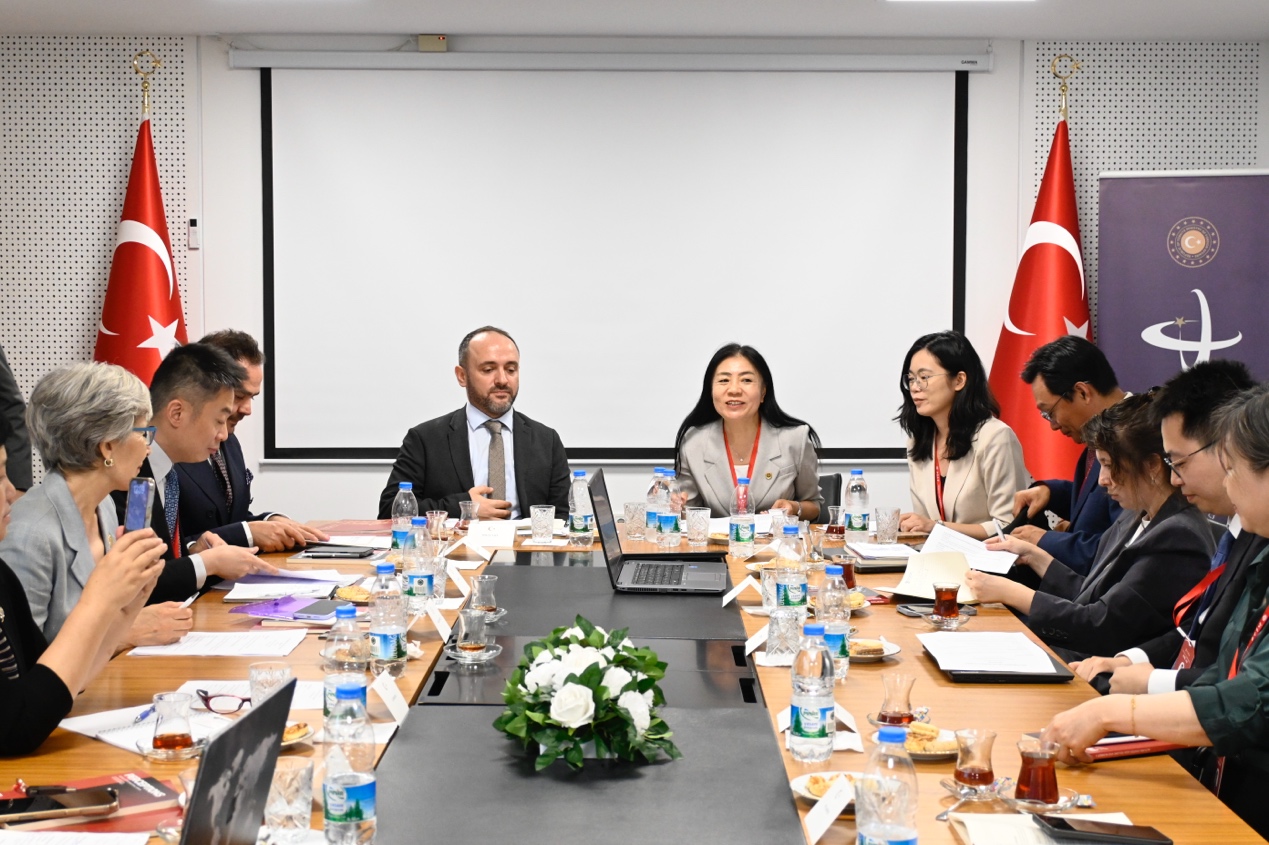
On the afternoon of July 11, the delegation was received by H.E. Mr. Jiang Xuebin, Chinese Ambassador to Turkey. Ambassador Jiang introduced the important achievements and challenges in the development of China-Turkey relations in recent years, encouraging young scholars to gain a deep understanding of Turkey through research and to actively participate in China-Turkey exchanges and cooperation. Counselor Zhou Meifen highlighted the current opportunities and potential for China-Turkey educational cooperation and expressed the hope that Peking University would play a greater role in promoting educational exchanges and people-to-people cooperation between the two countries.
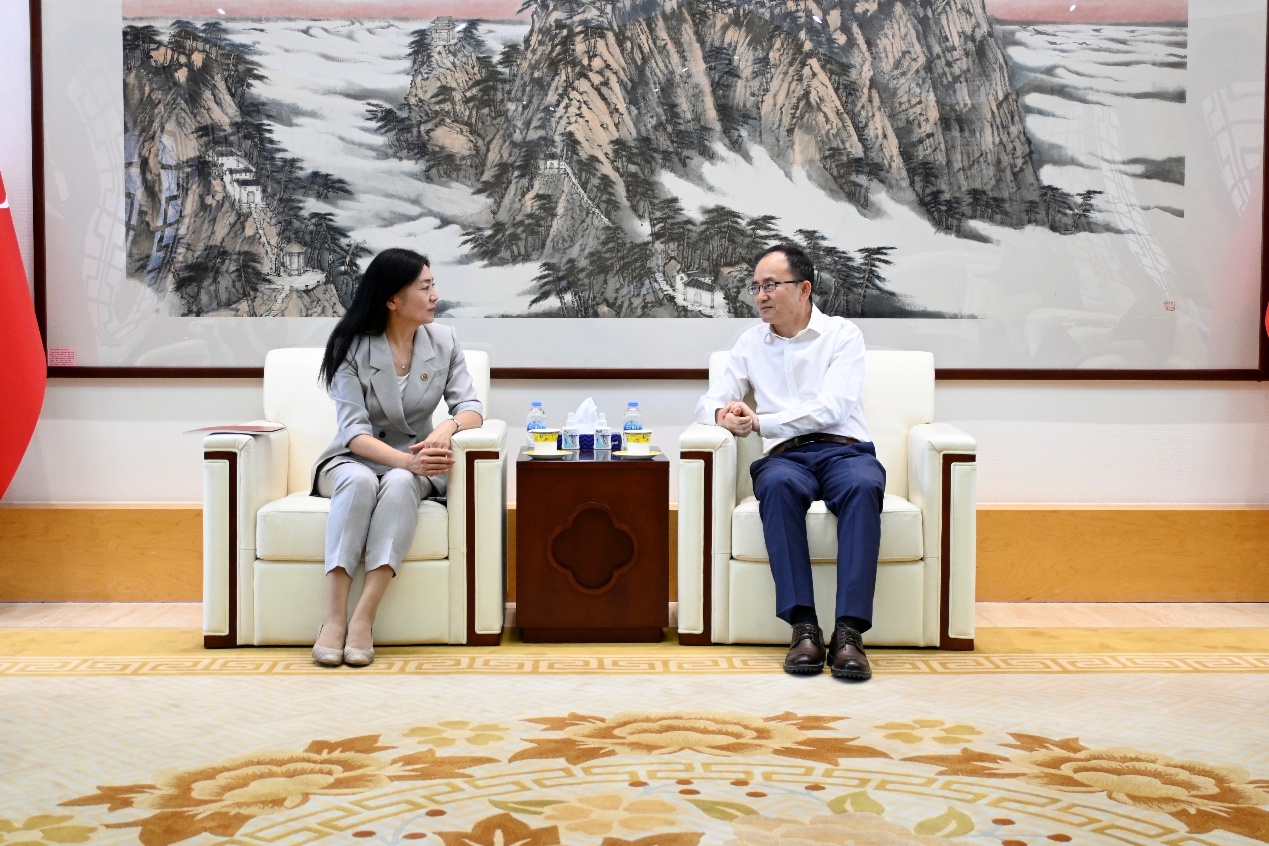
On the same day, the delegation also visited the Huawei Ankara Office. Ma Yongnong, a Board Member of Huawei Turkey, set forth Turkey’s macroeconomic situation, business environment, and Huawei’s development history and business portfolio since entering the Turkish market in 2002. Subsequently, the delegation held detailed discussions with Huawei representatives on the development opportunities and challenges for Chinese enterprises in Turkey, cooperation prospects under the Belt and Road Initiative, and localization strategies.
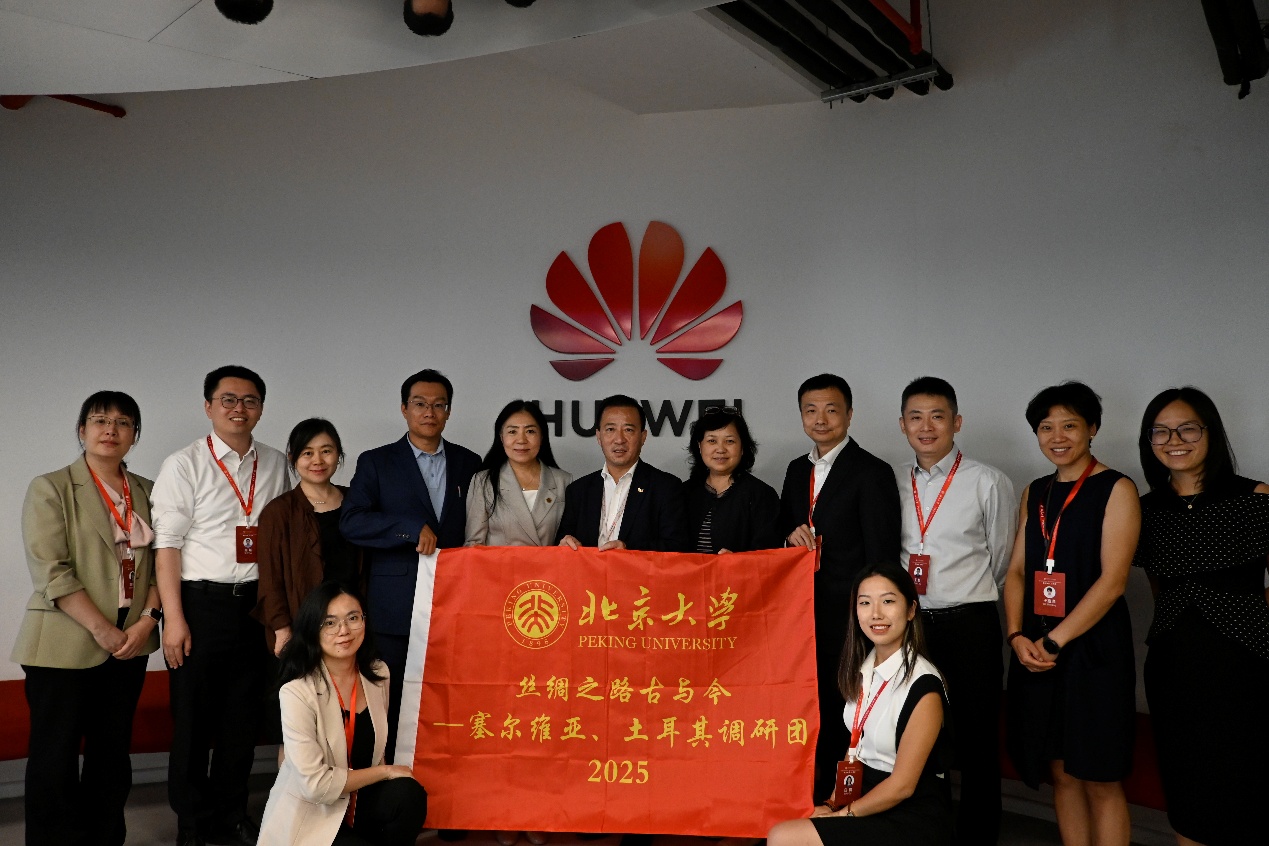
On July 13, the delegation visited the Turkish publishing house Kirmizi Kedi Yayinevi, holding profound discussions with its founder, Mr. Haluk Hepkon, and experts from publishing and media fields. Mr. Hepkon outlined the landscape of China-themed books in the domestic market. Ning Qi introduced the National Social Science Fund of China (NSSFC) Chinese Academic Works Translation Project and encouraged more Turkish publishers to collaborate on joint translation projects, aiming to introduce more high-quality China-themed books to Turkish readers.
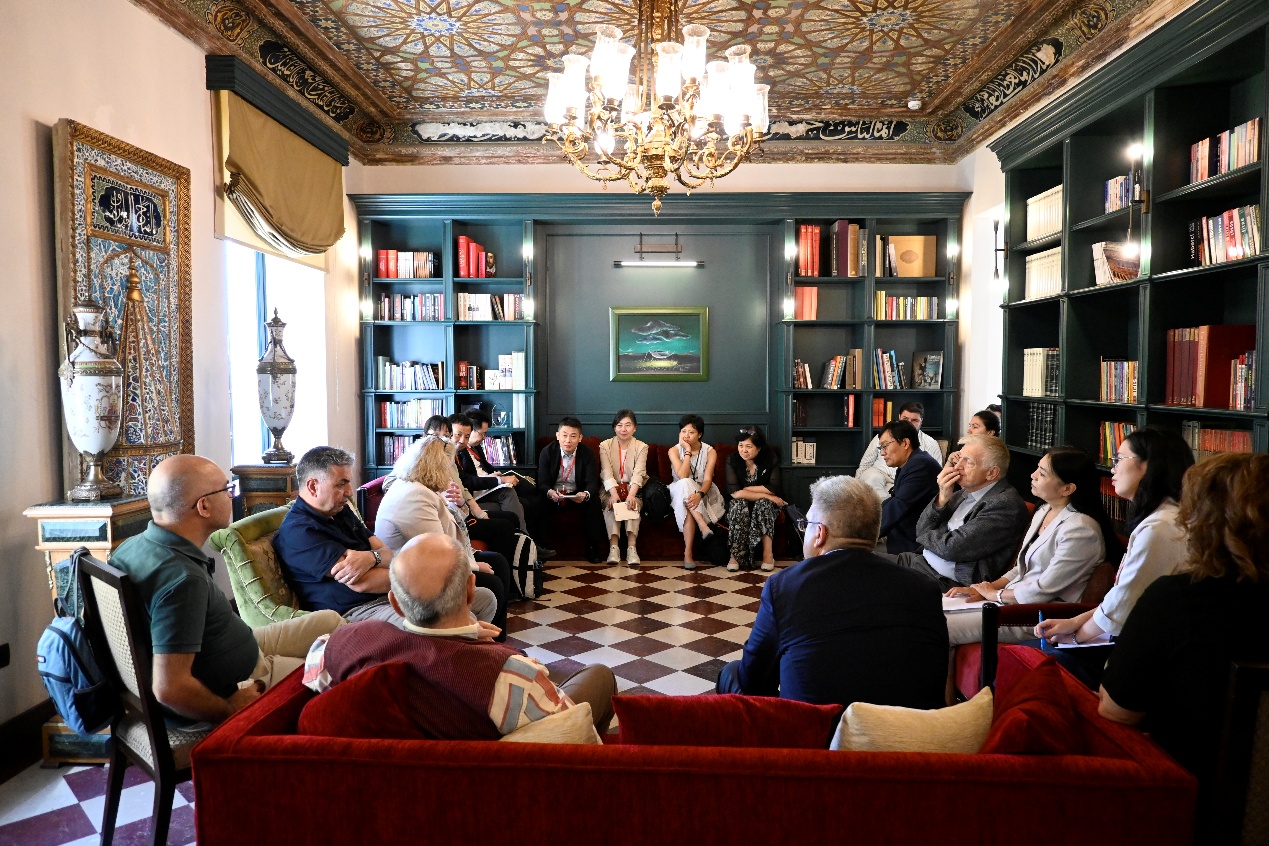
On the same day, the delegation visited the headquarters of the Patriotic Party (Vatan Partisi) in Turkey. The Party Chairman, Mr. Doğu Perinçek, spoke highly of China’s development achievements, stating that China and Turkey are closely aligned on their political philosophy, development paths, and stances on global affairs, and that deepening bilateral exchanges and cooperation holds great strategic importance. He proposed building long-term, stable platforms for exchange and cooperation through co-establishing academic journals and jointly organizing academic forums, to promote in-depth dialogue in humanities and social sciences. Delegation members expressed positive agreement and looked forward to broader and deeper cooperation with Turkish counterparts in various dimensions including academia, education, and culture in the future.
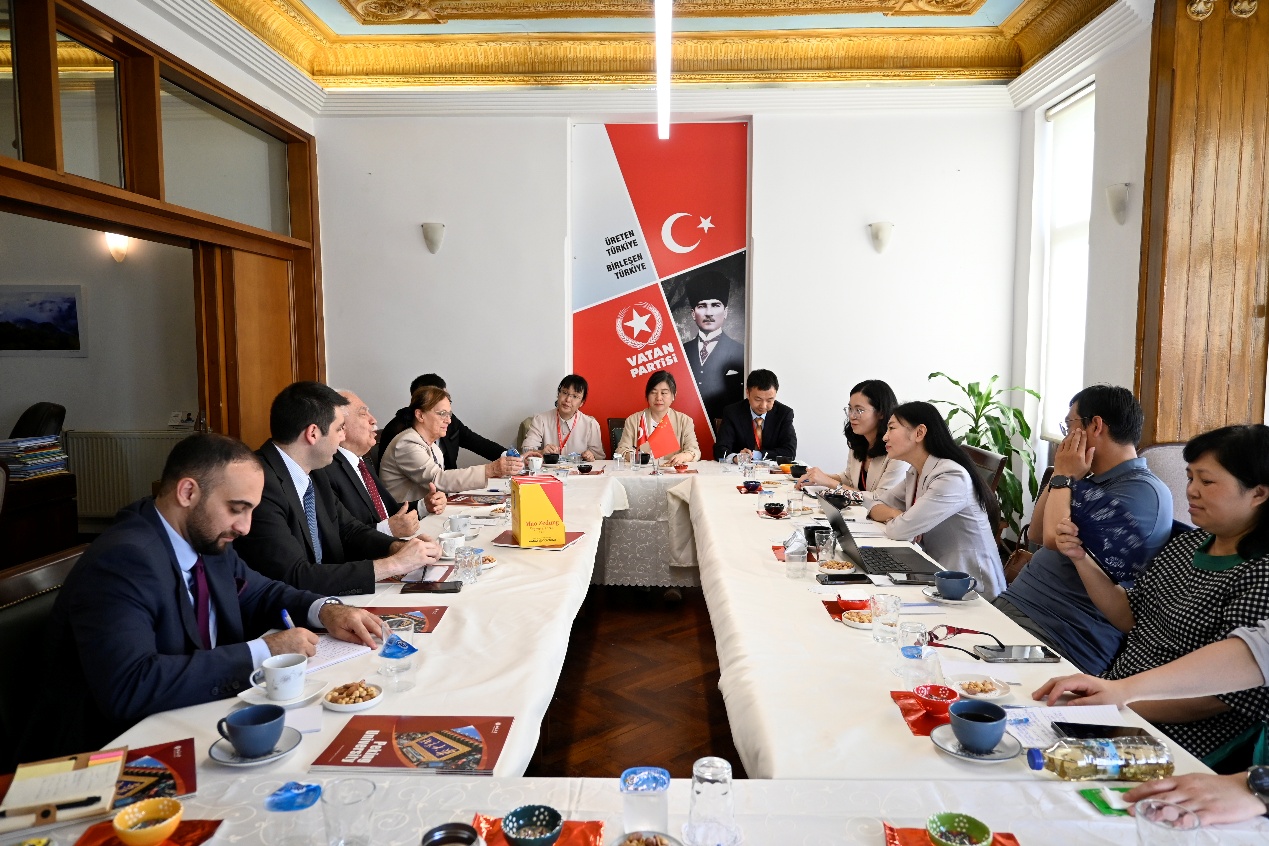
On July 14, the delegation visited ICBC Turkey. The two sides expressed hope for cooperation in areas such as think tank research and talent exchanges, to contribute to the development of China-Turkey economic and trade relations. On the same day, the delegation also visited two renowned Turkish universities: Boğaziçi University and Istanbul University. Discussions were held on student exchanges, joint research, language teaching, and cultural exchanges between Chinese and Turkish universities, with both sides expressing a shared desire to further expand practical cooperation channels and promote the sharing of educational resources in the future.
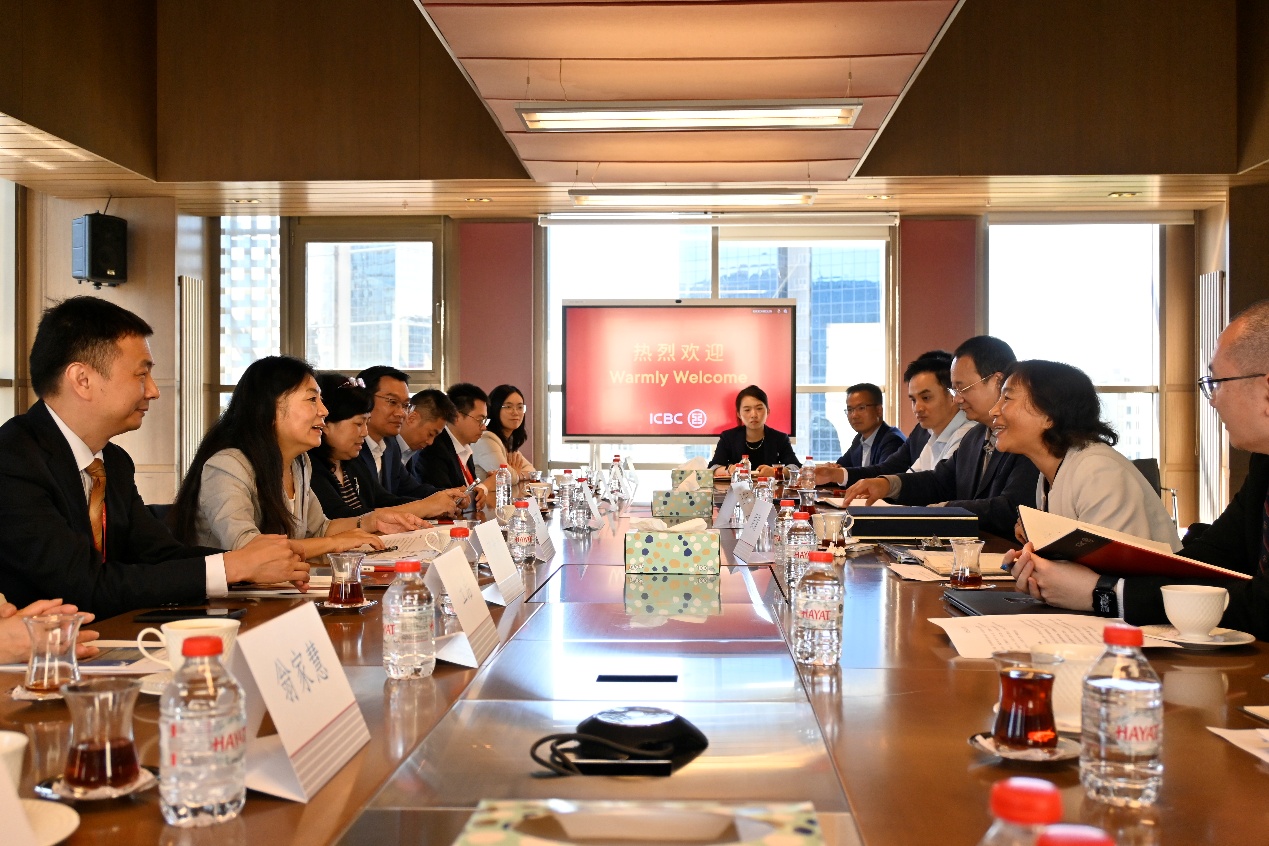
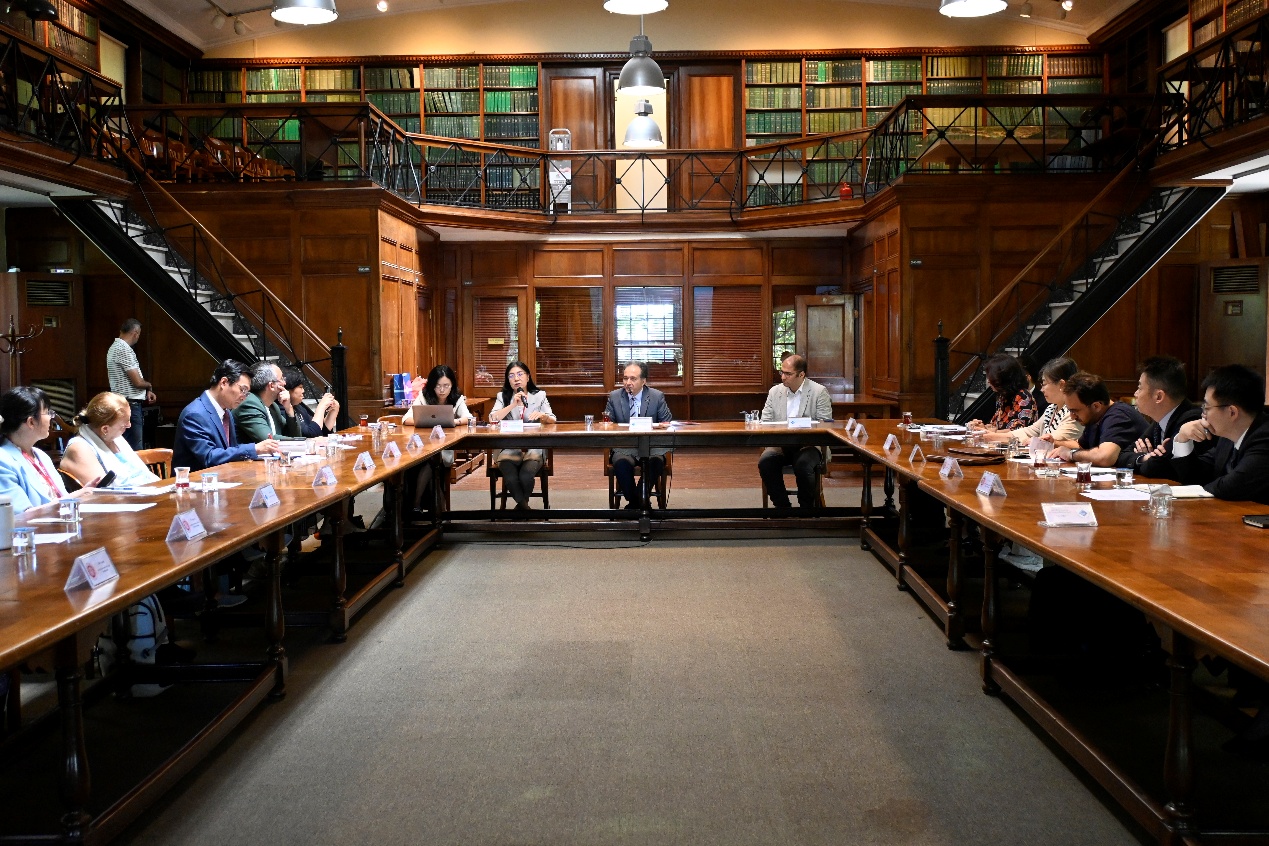
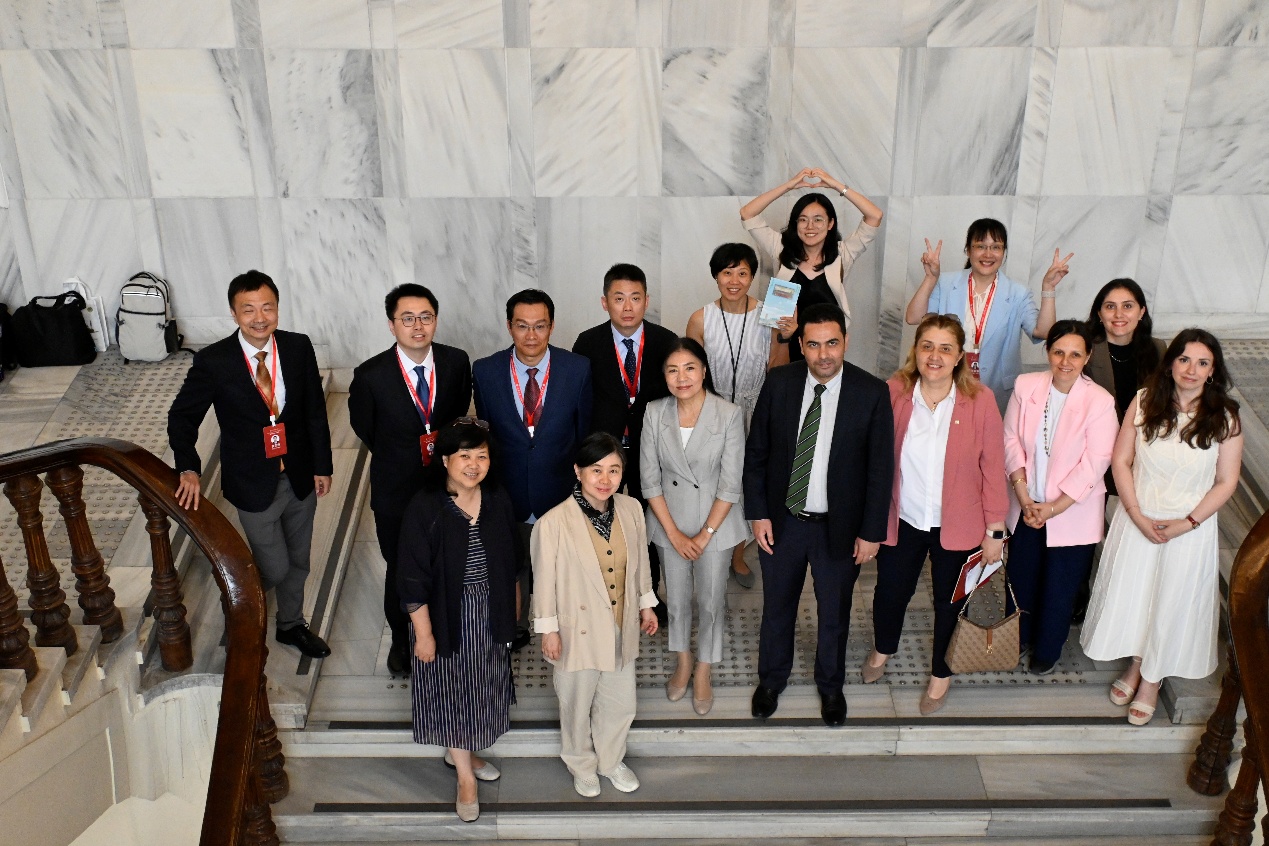
The “Silk Road: Past and Present” research project focusing on neighboring countries is an innovative research initiative launched by the School of Foreign Languages. It builds upon the experience gained from participating in the PKU Graduate School’s “Global Perspectives” International Summer Research Program for Graduates and the School’s own “Viewing the Periphery from the Frontier” series. The project aims to integrate scientific research, policy advisory services, academic exchange, ideological and political development, and talent cultivation. It organizes research teams to travel to countries along the Belt and Road, designing interdisciplinary research topics encompassing past and present around cutting-edge issues, thereby enhancing the team’s interdisciplinary research capabilities and international perspectives, and providing robust intellectual support for the nation.
Text & Photos: Zhang Nan, Bai Ou
Translated by Zou Ya
